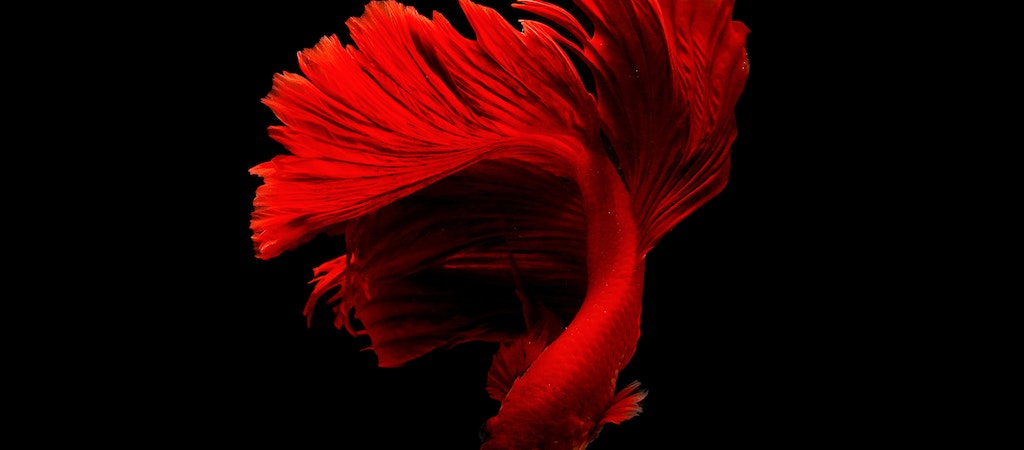
Betta Fish Care Tips to Ensure Optimal Health
Are you the proud owner of a betta fish? Have you been wondering how to provide the very best care for them? If so, you’re in luck! Today we’ll be discussing some key tips that can help keep your pet betta healthy and happy. From establishing an appropriate tank environment to understanding their diet needs, there is much to consider if you want your pet betta to thrive. With these simple yet effective suggestions, caring for your betta can be easier than ever before. So let’s dive right in – it’s time to learn all about how best to show our little friends some love and attention!
Betta Fish Diet and Feeding Schedule
Bettas are carnivorous by nature, so their diet should be rich in protein. They love to munch on bloodworms, brine shrimp, and daphnia, but they will also appreciate a good quality betta-specific pellet. These pellets are specially formulated to fulfill their nutritional needs and should make up the primary portion of their diet. The information you find on this website and similar ones will help you understand the specific contents and quantities that are recommended for your betta. It’s important not to overfeed your betta, as this can lead to bloating and other health issues.
A good rule of thumb is to feed them only what they can consume within two minutes, two or three times a day. It can be tempting to offer more food, but remember that bettas have small stomachs and can easily become overweight. Also, try to vary their diet by occasionally offering them live or frozen foods, as this will provide a more diverse nutritional profile for your little fish friend.
Setting Up the Ideal Betta Fish Tank
When it comes to setting up the perfect home for your betta, there are several key factors to consider. To start, betta fish require a minimum of a 5-gallon tank to allow sufficient space for swimming and exploring. This should be equipped with a heater to maintain a consistent temperature of around 78-80 degrees Fahrenheit, as bettas are tropical fish.
In addition to the right temperature, betta fish also prefer slightly acidic water with a pH between 6.5 and 7.5, so investing in testing kits to monitor pH levels can be beneficial. The tank should be filtered, but the water flow needs to be gentle; bettas aren’t strong swimmers and can become stressed in strong currents.
Tank Decor and Enrichment
It’s imperative to include a variety of decorations and plants in the tank. A well-decorated tank does more than just look good – it provides hideouts and resting places, making your betta feel secure and reducing stress levels. Silk or live plants are recommended over plastic ones, as their softer texture won’t risk damaging your betta’s delicate fins.
For enrichment, consider adding a betta hammock or leaf bed where your fish can rest near the water’s surface. This accessory is particularly beneficial because bettas are labyrinth fish, meaning they need to gulp air occasionally. Additionally, bettas are curious creatures and enjoy exploring their surroundings. Add a variety of different shapes and textures, but ensure none are too sharp or rough to harm the betta.
Avoiding Common Betta Fish Diseases
Maintaining the health of your betta fish involves more than just a proper diet and an enriched living environment – it requires vigilance for common diseases that may affect them. A common condition bettas can suffer from is fin rot, which often results from poor water conditions. Regular water changes and testing for ammonia, nitrate, and nitrite levels can help prevent this.
Another typical ailment is Ich, a parasitic infection characterized by white spots on the fish’s body. Increasing the water temperature slightly can speed up the parasite’s life cycle and enhance the effectiveness of treatment.
Lastly, Swim Bladder Disease, which affects the fish’s buoyancy, can be caused by overfeeding or feeding the wrong type of food. Ensuring a balanced diet and proper portions can help avoid this condition.
Handling and Interacting with Betta Fish
Interacting with your betta fish is a key part of keeping them happy and healthy. First and foremost, it’s important to remember that bettas are solitary fish and can become stressed when handled excessively. However, that doesn’t mean you can’t interact with them.
The best way to handle bettas is indirectly. They are highly responsive to visual stimuli, so try moving your finger slowly across the outside of the tank and watch as your betta follows along. This activity can provide mental stimulation for your fish and help strengthen the bond between you.
You might also consider using a feeding wand to hand-feed your betta. This can be a great way to interact with them while also ensuring they are getting the right amount of food. It’s crucial to remember that bettas should never be taken out of water. They breathe through gills like other fish but also need to surface for air periodically. Removing them from their aquatic environment can cause unnecessary stress and potentially harm to their health.
In conclusion, caring for your betta fish involves providing a suitable living environment, understanding their dietary needs, and being aware of common health issues. With proper care and attention, your betta can live a happy and healthy life by your side. So remember to research, ask questions, and keep learning to ensure the best care for your beloved pet!
Daily Newsletter
Subscribe to Jebiga for a dose of the best in gear, design, rides, tech and adventure.






